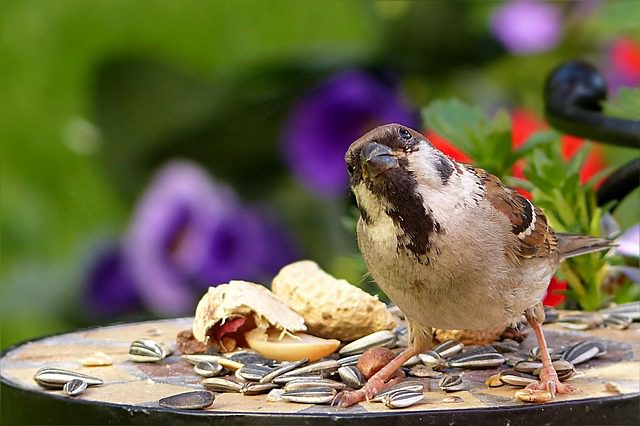Attracting wildlife to your garden is one thing, but making sure that it is a safe and secure location for animals requires a little more skill than you might think.
Persistent dangers, such as the threat of hungry predators, is an issue for many birds and mammals.
If you want to help look after local wildlife, you will have to take the necessary precautions to ensure your garden can protect the creatures who have called it their home…
Provide a safe shelter
In order to make animals feel at home in your garden, you must provide them with an ideal place to live. Animals require shelter to rest, roost and breed. Smaller animals such as hedgehogs and toads will find shelter in log piles, whilst insects will take cover in shrubs throughout the cold months of winter.
However, birds require closer attention because they need certain things in their homes to make them feel safe and secure. Bird houses should have the following features:
- Rough interior walls – smooth walls are slippery, making it unnecessarily difficult for little hatchlings to climb out once they are ready to fly.
- Ventilation holes – holes are essential to vent excess moisture and heat.
- Untreated wood – birdhouses should be made from either pine, fir or cedar.
- Sloped roof – a sloped roof will keep rain out of the entrance.
- Durable construction – don’t go cheap with the construction. Choose a bird house that is sturdy and durable enough to last through the seasons in the UK.
- Ideal placement – consider the placement of your bird house. Avoid places that are within easy reach of potential predators such as cats.
Constant food supply
Animals need to be assured that there is a constant supply of food nearby and that they will not go hungry if they stay in your garden. Putting up bird feeders will keep your feathered friends well-fed throughout the year – particularly a bird feeder designed to suit smaller birds, such as finch feeder, which is perfect for small birds that like to eat smaller seeds such as thistle or nyjer seeds. However, other forms of wildlife will require alternative means to forage and fee, too. According to The Royal Society for the Protection of Birds, cutting shrubs in early spring and late winter helps to retain fruit and seeds for small mammals during winter.
Clean water source
Birds and mammals require a clean water source that they can depend on. Birds will often enjoy splashing about and some may even tiptoe to the edge of a pond, for example. You can make access to the water easier for them by placing some stones along the perimeter and under the shallow parts of the water to allow birds to perch and drink right from the source. If your water feature is difficult to access, it will put animals off drinking from it. Ensure that the sides are gently sloping, allowing amphibians and other small animals to escape should they accidentally fall in. Having a garden pond also provides an excellent water source for other wildlife species such as frogs, toads and hedgehogs.

